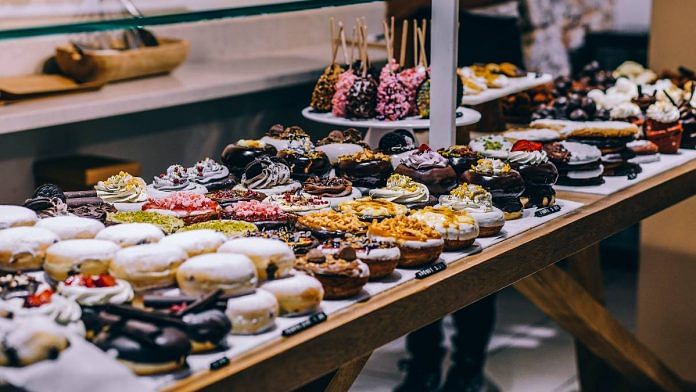New Delhi: The characteristic flavour of vanilla that makes desserts and bakery products more delicious is derived from vanilla beans. Scientists now say they have found a way to turn plastic into this delectable ingredient.
Scientists from the University of Edinburgh have found that bacteria E. coli can sustainably convert waste plastic into vanillin, the primary component of extracted vanilla beans.
Vanillin is responsible for the characteristic taste and smell of vanilla. It is widely used in the food and cosmetics industries, as well as the formulation of herbicides, antifoaming agents and cleaning products. Global demand for vanillin was in excess of 37,000 tonnes in 2018.
With single-use plastic becoming a global menace, there is a growing need to find ways to recycle polyethylene terephthalate (PET), the material derived from non-renewable resources such as oil and gas.
Also read: ‘Wakao!’ — the whacky Vanilla Coke ad starring Vivek Oberoi that fizzled out very quickly
The Vanillin solution
The scientists used engineered E. coli to transform terephthalic acid — a molecule derived from PET — into the high value compound vanillin.
The technique works by converting a used plastic bottle into vanillin by adding the E. coli to the degraded plastic waste.
While researchers assured that the vanillin produced is fit for human consumption, further experimental tests are required.
“This is the first example of using a biological system to upcycle plastic waste into a valuable industrial chemical and this has very exciting implications for the circular economy,” Joanna Sadler, first author of the study from the University of Edinburgh, said in a statement.
“The results from our research have major implications for the field of plastic sustainability and demonstrate the power of synthetic biology to address real-world challenges,” Sadler said.
PET is widely used for packaging foods, juices and water. Previous research has shown that nearly 14 million tonnes of plastic could be making its way to the bottom of the oceans.
According to the research team, approximately 50 million tonnes of PET waste is produced annually, causing serious economic and environmental impacts. While PET recycling is possible, existing processes create products that continue to contribute to plastic pollution worldwide.
(Edited by Manasa Mohan)
Also read: Covid has resurrected single-use plastic. Pandemic is turning clock back



